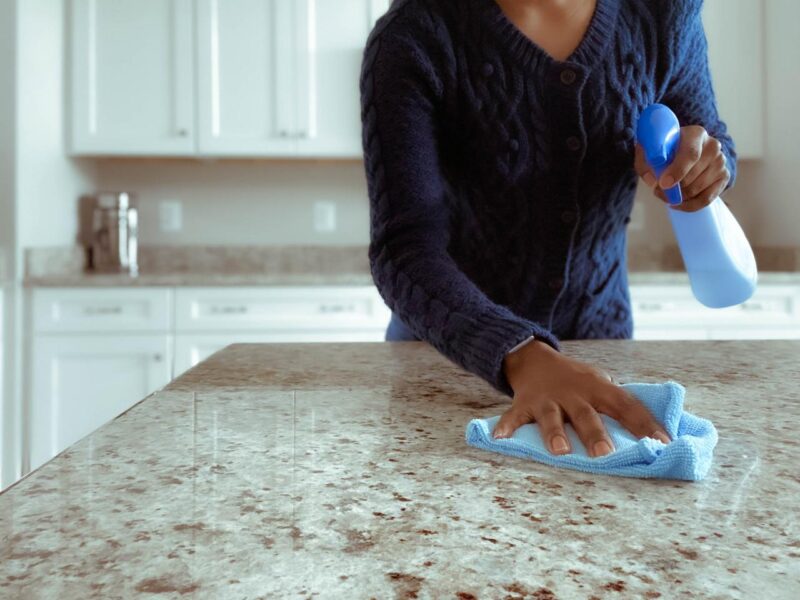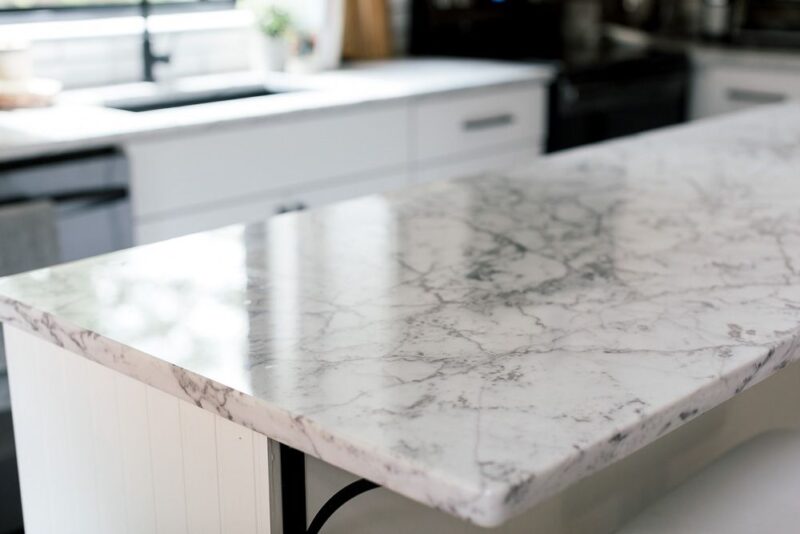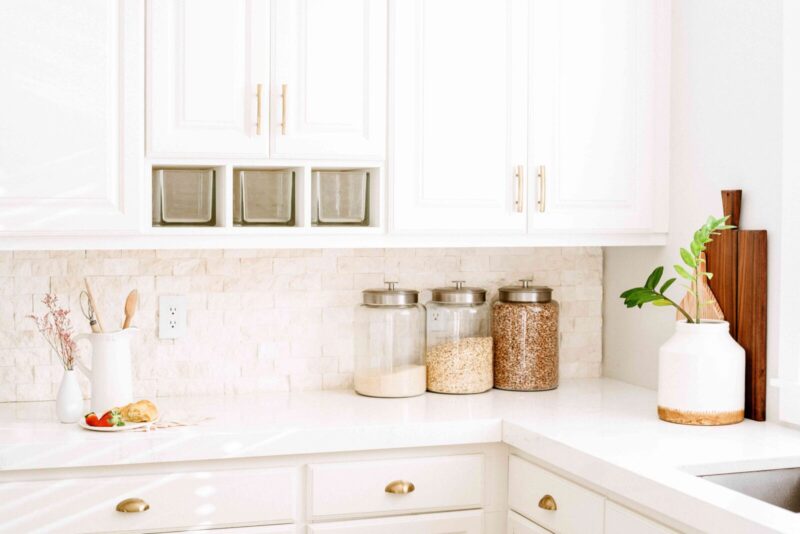Kitchen countertops see a ton of action as surfaces for food prep, cooking, cleaning, storage and more. The experts say that with so much daily use, it is critical to properly care for your countertops so that they stay looking fresh and avoid unnecessary damage. Certain maintenance habits also improve hygiene, extend counter lifespan, and prevent costly repairs or replacements down the road.
General Cleaning Tips

No matter your countertop type, according to the experts from Bedrock Quartz some universal cleaning tips apply:
- Wipe up spills immediately before they have a chance to dry or stain, especially oils, juices and liquids containing pigments that can soak in and discolor certain materials.
- Wash regularly with mild soap and warm water using soft sponges or microfiber cloths. Avoid harsh cleaners and scouring pads that could scratch.
- For stuck-on residue, try a non-abrasive paste made from baking soda and water. Apply the paste and let sit for 5-10 minutes before scrubbing gently with a damp sponge.
- Sanitize periodically by wiping down all surfaces with disinfectants safe for your counter material. This prevents bacteria growth in areas coming into contact with raw meat, poultry and unwashed produce.
Stone Countertop Care
Elegant granite, marble, soapstone, and slate definitely require some special attention given their porous nature. Regular sealing is essential to prevent liquids and oils from penetrating tiny surface pores leading to stubborn stains. Use tape to mask off walls and cabinetry, then apply a penetrating sealant, covering all exposed areas (including edges and seams). Buff off thoroughly. Reapply every 1-2 years.
Despite sealing, spills can still happen and etch acid-sensitive surfaces like marble. Have poultice paste on hand to immediately draw out discoloring agents. Peroxide cleaners also help revive stone discoloration. Avoid vinegar, lemon juice or other acids that chemically react with the minerals in stone leaving permanent etching or pitting damage.
Engineered Quartz & Solid Surface Care

Nonporous engineered quartz and solid surface are highly stain-resistant making cleaning and care much easier. About once a week, wipe down thoroughly with a soft microfiber cloth using mild soap and water to remove surface buildup. For stuck-on residue, apply a non-abrasive cleaner, scrubbing gently with a non-scratch scouring pad.
Wood & Butcher Block Care
The warm, natural beauty of wood and butcher block countertops brings lots of character but needs conditioning to prevent swelling, cracking, splintering and water marks. Avoid placing hot items directly on the surface, as it can cause scorching.
Clean regularly with mild soap and water, buff dry immediately, then apply butcher block oil frequently with a soft cloth. Let soak in thoroughly. Mineral oil also works well for periodic conditioning. This fills pores to limit moisture penetration while also enhancing the grain. Look for food-grade oils to avoid contamination with prep surfaces coming into contact with edibles.
Tile & Concrete Care

Multifunctional concrete and tile stand up extremely well to heavy use. Their nonporous composition resists staining while the textures hide superficial scratches accumulated over time. Clean as needed with mild pH-neutral soap and water using a scrub brush for textured grout lines. For deeper cleaning, occasionally use alkaline-based tile cleaners as acids can damage grout over time.
Avoid setting extremely hot pans directly on concrete which can shear delicate mineral layers or crack tiles, causing permanent damage. Always use trivets and hot pads. Pressure from dropped heavy objects can also crack thick concrete and tile surfaces.
Conclusion
A clean, well-maintained countertop instantly makes any kitchen look sharper while helping eliminate hygiene hazards for food prep. Protecting your investment through proper care also saves thousands over time by avoiding costly replacement or refinishing.


